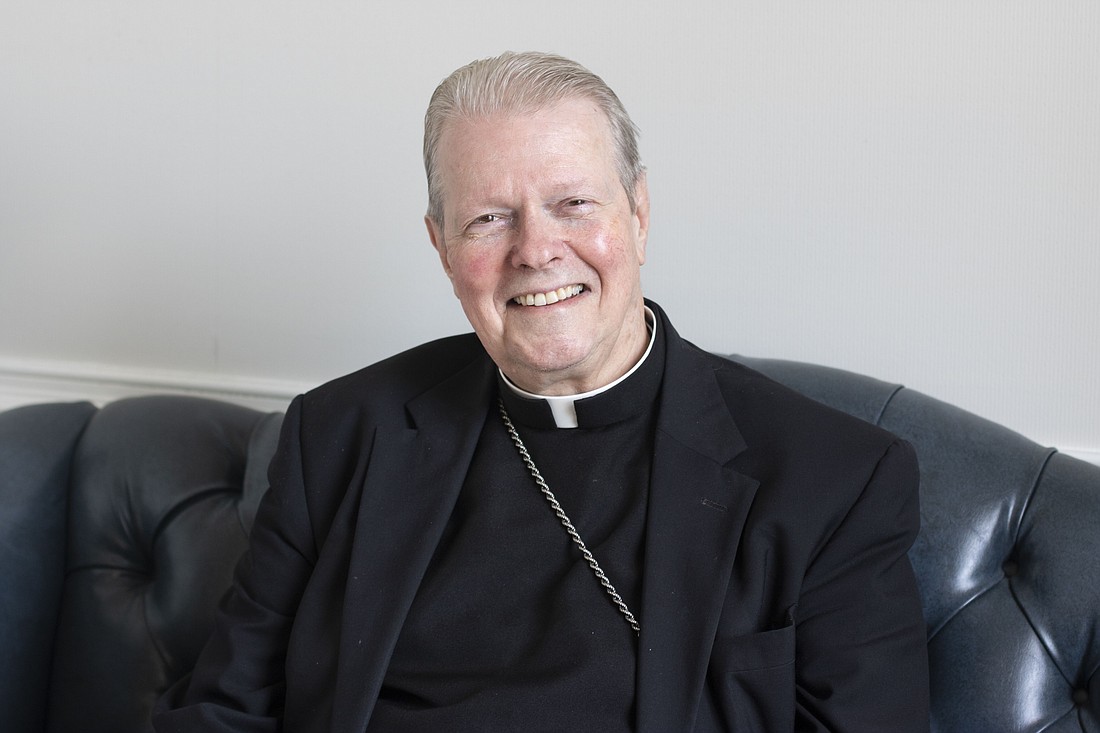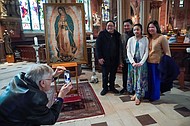May 25, 2023 at 8:33 a.m.
All the lonely people
Of all the ailments that plague human beings, perhaps none is more painful and common as loneliness. The causes are numerous and often unpredictable. The sudden death of a loved one. A disabling accident. An unwelcome diagnosis. The loss of economic stability, of a job or a home. The advance of the aging process with its physical and mental vicissitudes. Most of these we have little control of and, consequently, these are some of the events that, because we may fear them, can cause anxiety even before they occur. Anxiety itself can lead to behaviors that themselves bring loneliness.
Bad habits may develop to ward off or lessen the pain of the feared calamity. Gambling, narcotics and various internet addictions (pornography, compulsive shopping and gaming, even exploration of the occult) can turn into vicious circles wherein the person becomes even more enslaved by the habit as it is fed. Even our brain passages can be altered. The dramatic increase of substance abuse following the pandemic, no doubt provoked by the social isolation, is itself approaching an epidemic in some places. Pastors are attending the funerals of significantly more young persons, often victims of drugs such as fentanyl-laced heroin, cocaine and methamphetamine, the risks of which they were no doubt unaware.
Such habits and addictions are acquired through desperate attempts to mask, deaden or deny the pain. Some, though not all, begin with choices that are sinful, such as using others, either virtually or in person for the sole purpose of personal gratification. Sin is by its very nature isolating because it turns persons inward, alienating them from God and others and, ultimately even from themselves. The streetcorners and sidewalks of many of our cities are filled with lonely people whose sad and wan faces and staggering postures tell of the spiritual and mental hell they are living in.
The Beatles eulogized Eleanor Rigby and Father McKenzie among “All the Lonely People,” asking, “where do they all belong?” And that indeed begs the question itself: not where but to whom do they belong? For the answer, sadly, is often no one. Perhaps not even themselves. Loneliness is the experience of being a rudderless ship in a perpetual storm, tossed about in the waves of a vast and endless sea of uncertainty.
In that kind of spiritual wasteland, it is no wonder that the drowning person will hold onto any buoy or raft thrown at them. This is where predators and charlatans move in, and victims are lured into human trafficking, cults and even the occult. The allure of some form of belonging, empowerment or affirmation may even lead some very disoriented and insecure persons to seek means of altering their minds, appearance and even bodies pharmacologically and surgically, with or without “professional” intervention.
All these factors and more are signs and symptoms of a society in which loneliness is pervasive and, along with it, distrust in many of the linchpins which hold society together by providing order and stability: the family, the justice system, the political order, the media, even medical and religious institutes. To whom does one turn to find refuge in this sea of troubles, of which Hamlet mused in his famed soliloquy as he contemplated even death as a remedy? And, yes, the suicide rate among the young is also on the rise.
This is as bleak a portrait of hell on earth as might be imagined. Poets like Dante in his “Divine Comedy” trilogy and Milton in “Paradise Lost” prefigured the various stages and consequences of humanity’s tragic descent into alienation from God, the resulting of falling for the temptation of the serpent to believe I know better than God who I am and what I need to find happiness and fulfillment. This, it takes little attention to observe, is the most popular religion of the contemporary world, that I define myself and am entitled to every service that will advance my claim. It is hurling us quickly into societal chaos, if we don’t die from exhaustion from this broken record bankrupting us and leading us nowhere.
Thank God there is a remedy! God is our refuge from loneliness. Our faith begins with the presence of a God who by nature is not alone. A triune God, three dynamic persons in the dance of an eternal love bond whom St. Catherine of Siena describes as “pazzo d’amore” or “crazy in love.” This love is poured out in us who, as humans, are made in the image and likeness of God, made by love and for love. This must include love of self, but an esteem that is born not of idolatry of self-praise but of reverence for the reality that each of us is a child of love, a child of God loved by God to the core. The foundation for our love of self is not an idolization of what we make of ourselves or what we have done, but in what God sees and loves in us and will lead us to become as we trust in God.
What is seriously lacking is an awareness and a belief that our source of meaning, and ultimately the fullness of life, lies outside of ourselves. We are made for others, beginning with the most “other” being that exists, with God, and to find our joy in the worship of our Creator and in loving all God’s creatures as God loves them. For us Christians, no one reveals the breadth and depth of God’s love greater than Jesus, for he is the once and forever incarnation of divine love itself, which is not a thing, but a person, a Divine Person.
To make this divine love incarnate more accessible to us, God, whom Jesus called his Father, gave his Son, as Jesus also called himself, over to us so completely as to be immersed into the death itself, the cruelest ever devised, so that no aspect of our human experience could ever separate us from God’s love. “Son though he was, he learned obedience from what he suffered,” as we read in Hebrews 5:8. This offers us a paradigm by which to live which guarantees that if we follow that obedience which Christ shows us, we will also share his destiny. Even death will not separate us from God’s love. But God gives more.
The same Jesus who died and rose ascended to heaven to send us his Holy Spirit, which is the love between him and the Father, to live in us, the same Holy Spirit unites us to one another in the one Body of Christ. This is the mystical, but real meaning of the passage which speaks of Jesus, to whom all things in heaven and earth have been submitted by virtue of his death and resurrection, being given by God to the church, “which is the fullness of him who fills all things” (Eph 1:23). In other words, we as the Church are God the Father’s gift to his Son, Jesus. We are that Body of Christ and, as such, never alone, but connected to God and one another. We can depend on this. It is for this reason that maintaining communion with Christ in the sacramental life of the Church sustains us in a full life that the world cannot give us, nor we to ourselves. Without this connection, our wheels may keep spinning, but we are only on our own. Alone.
@AlbBishopEd






Comments:
You must login to comment.